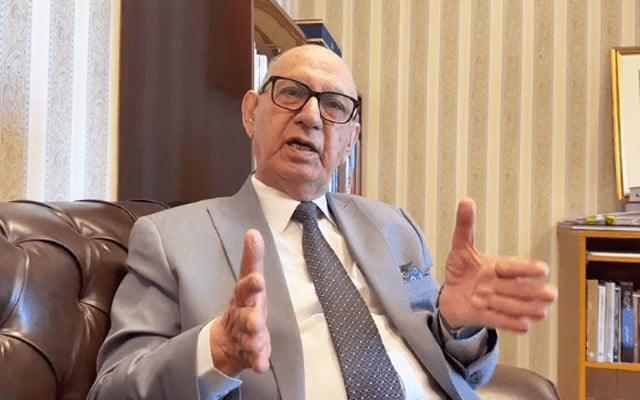Pakistan Tehreek-e-Insaf (PTI) has introduced new demands in the ongoing political negotiations, raising concerns from Pakistan Muslim League-Nawaz (PML-N) Senator Irfan Siddiqui over the future of talks to resolve the disputes. political tensions in the country.
Speaking to reporters on Sunday, he warned that the PTI’s change of stance, which now includes releasing Imran Khan through executive order and involving “real decision-makers” in the talks, could undermine the progress made. during previous negotiations.
The coalition government and the PTI had initially reached a consensus on two central demands during the first round of talks on December 23, 2024: the release of political prisoners and a judicial inquiry into the events of May 9 and 26. November. conditions has generated criticism from government representatives.
Siddiqui noted that despite assurances given during earlier discussions, PTI is yet to formally submit a list of demands. He highlighted recent comments by senior PTI leader and former National Assembly Speaker Asad Qaiser, who revealed the party’s desire to include “stakeholders with real decision-making power” in the dialogue process.
The PML-N leader expressed concern that this demand was not raised in previous rounds of negotiations, suggesting a lack of alignment within the PTI leadership.
He commented: “The dialogue process will not move forward positively if the PTI keeps changing its stance.” He also noted that Qaiser’s latest statements indicated difficulties in fulfilling promises made to the government team during previous discussions.
Responding to criticism, Qaiser described the presentation of a formal list of demands as a “formality” and expressed confidence that the third round of talks, scheduled for this week, would provide greater clarity.
He emphasized the importance of sincerity and prioritizing national interests in negotiations, while urging the government to consult with all stakeholders to remove ambiguities and expedite decision-making. He further highlighted the need for the broader PTI leadership to be involved in the discussions to ensure transparency and alignment.
Despite concerns about the changing nature of the PTI’s demands, Qaiser reaffirmed the party’s commitment to the dialogue process and its intention to take “meaningful positive decisions.”
He clarified that the PTI had no intention of derailing the negotiations and urged the government to meaningfully engage with all relevant stakeholders. The outcome of the next round of talks will likely determine whether the dialogue process can move forward constructively or be derailed by changing dynamics.




